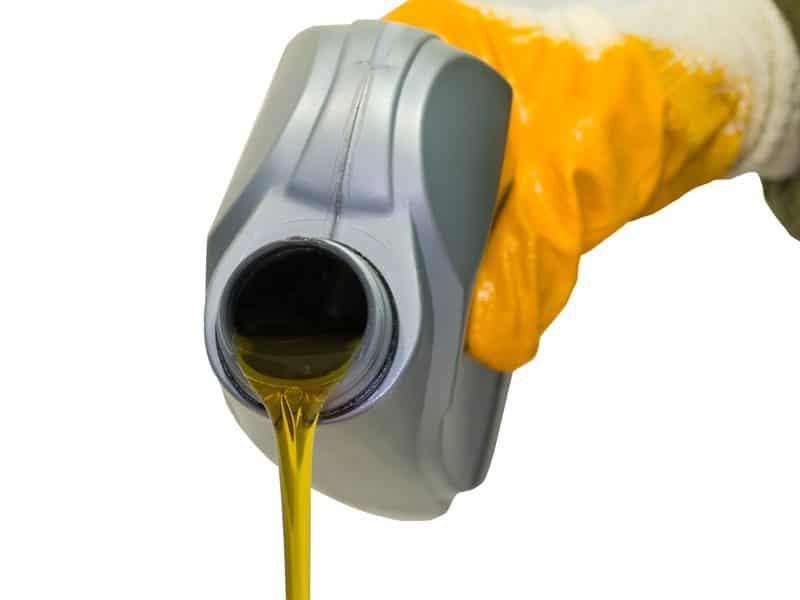
Large and heavy vehicles require powerful engines, and your recreational vehicle is no exception. Most RVs fall under the truck category.
Makes and models with a gross vehicle weight rating (GVWR) of less than 8,500 lbs. are considered light-duty trucks, while those that weigh more than that are considered heavy-duty trucks. A unit may seem smaller than a traditional 10- or 16-wheeler, but if you consider its load, it may very well be as heavy.
The problem is there are as many engine brands as RV brands. Choosing can be tricky, especially with insufficient technical knowledge.
Since most RV manufacturers partner with engine manufacturers, you must choose an RV and engine model simultaneously. Unfortunately, brands that offer the best of both worlds are rare. Usually, either the engine or the rig’s structure is bang-up.
In that case, it’s better to choose an RV based on the engine model. After all, no matter how appealing an RV’s interior and exterior features are, it isn’t worth the buck if the engine is substandard.
Furthermore, most good-quality, high-performance engines for RVs are from established brands, such as Ford. They are likely to design and create these engines simply because they have the necessary resources, unlike younger and lesser-known manufacturers that usually outsource some of their processes.
Ford 460 Engine
The Ford 460 V8 is one of Ford’s longest-standing engine brands. It was part of the Ford 385 series of V8 engines that started decades ago. This engine and the Ford 429 V8 used by Lincoln are the last of Ford’s V8 big block engines.
Many RV manufacturers still use it because of its proven torque rating and capacity. Some RV owners knowledgeable about truck engines even customize their rigs to replace the engine with the Ford 460.
Reviews on the Ford 460, however, aren’t all positive. Like other engine models, it has its share of disadvantages, which you should anticipate if you plan on getting an RV with it.
RV owners with the Ford 460 claim that it cannot produce the expected RPM due to its narrow exhaust ports choking it out during operation. It needs a good-quality cast iron head for better displacement and exhaust. Overall, it still performs much better than most high-end engine brands.
The importance of motor oil. Before choosing a type and brand of motor oil, you should first know its role in engines.
This way, you’ll determine what properties go with which engine, thereby buying the correct type of oil for your motor. It is common knowledge that oil is a lubricant for machines and equipment, but there’s more to motor oil than that. Below are its known functions in a car engine.
It supplements the coolant. An engine produces intense heat as it deflagrates fuel. That heat is usually conveyed through the radiator (some are used as heating for the vehicle’s cabin) and absorbed by the coolant.
However, the coolant can only absorb and release so much heat. The oil absorbs and distributes some of that heat while lubricating the engine.
It slows down corrosion. Ever wondered why motor oil is sometimes used to wipe off excess rust on certain metals? That’s because motor oil has additives that counter corrosion. And if corrosion is triggered by oxidation, motor oil covers the surfaces of engine parts to keep moisture and air out.
It seals off clearances. Many engine components slide against each other as they move. This relationship takes precision to exert just enough force to influence either component. But this is sometimes not achieved due to clearances. Motor oil makes up for the friction loss caused by these clearances.
Gets rid of particles. The engine produces so much metal dust and combustion residue as it operates. Motor oil carries these particles into the oil filter to prevent them from being recirculated back into the system.
However, it’s important to note that motor oil gets saturated with contaminants over time, increasing its viscosity and reducing its performance. That’s why you need to change the motor oil at least every 3,000 miles.
Recommended Oil For The Ford 460 Engine
Oil can be produced naturally and synthetically. And because engine designs vary from brand to brand, motor oil comes in various grades, viscosities, colors, and resilience. Generally, motor oil is available in three types: mineral, semi-synthetic, and synthetic, each suitable for particular engine builds.
The efficacy of motor oil isn’t determined by the quantity of natural minerals it contains. Instead, any of these three types work best on specific engine brands.
And as you delve deeper into the mechanical relationship between motors and oil, you’ll learn that oil type isn’t what impacts engine performance, but oil’s viscosity or fluidity. For instance, the Ford 460 engine performs best with motor oil with specific viscosity grades.
W for winter: Before we get to the codes professionals use to grade motor oil viscosities, let’s first learn what the “w,” which we’ll often see, means. “W” stands for winter.
The Society of Automotive Engineers (SAE), who came up with the idea of referring to “winter” when describing oil viscosity, explains that understanding motor oil’s capacity requires measuring its performance in extreme temperatures.
And since viscosity measures resistance to flow, and they wanted to determine the ideal viscosity of motor oil for actual scenarios, it’s only fitting to reference winter.
But let’s remember that each engine brand requires a specific viscosity level, so we’re not looking for a one-size-fits-all option. To put it into perspective, one motor oil brand may not work efficiently on an engine during a snowstorm but does on another engine.
It could also mean, in the case of some engines, you can use a different grade of motor oil, depending on the weather. For example, you can use thinner motor oil in winter, but it should be compatible with your engine.
SAE developed a standard scale with two sections to measure motor oil’s viscosity. The first part represents motor oil’s viscosity in winter, going from 0W to 25W, with 0W being the thinnest. The second part represents motor oil’s viscosity under normal conditions, which goes from 20 to 60, with 60 being the thickest.
10w30 (10 when cold and 30 when hot)
Since 10w30 is on the lower end of the scale, it’s among the thinnest grades and perfect for wintery conditions. It stays fluid when the engine warms up and during a cold start. With a lubricant this light and smooth, the engine can efficiently generate RPM.
In addition, the low resistance low helps reduce damaging internal friction and resistance among the engine parts. The Ford 460 engine is designed to perform efficiently under these conditions, making 10w30-grade motor oil ideal.
20w50 (20 when cold and 50 when hot)
Motor oil with this grade is thick and pumps slower during a cold start. Internal friction is common and might last until the engine reaches its peak heat. This causes the engine to guzzle up more fuel to turn the necessary RPM.
That means more stops to refuel, which is costly and time-consuming. However, these conditions are still within the Ford 460 engine’s capacity. Even though it isn’t as fluid as the 10w30, it is fluid enough to lube up and maintain the Ford 460 engine’s power.
Brand choice
Now that you know the ideal viscosity of motor oil for the Ford 460 engine, you can start exploring different brands. Quite a few brands offer either within these ranges or even better.
Synthetic oil, AMSOIL, for instance, has 5w30 viscosity, which is remarkably fluid for oil. But it might be too light for your Ford 460 engine, so try it first and compare it with motor oil of other grades.
Another synthetic oil you can try is Red Line Synthetic. Like AMSOIL, it also has 5w30 viscosity. The performance is similar, too, and works well with old Ford 460 models. You can choose either depending on availability.
Finally, try Mobil if you want something thicker and more suitable for the old and new Ford 460 engines. It’s less popular than the first two, but it can easily rival them in flexibility and durability.
When to change the motor oil
Many vehicle owners know how to change their engine oil but not when to do it. After all, motor oil is among a vehicle’s easily forgotten or neglected elements due to the lengthy intervals between maintenance. In case you are unfamiliar with the signs that your engine needs fresh oil, here are some:
- Strange sounds from the engine – If you hear a knocking or scraping sound from under the hood, it’s probably caused by engine parts rubbing against each other dry. This shouldn’t happen if there’s enough lubricant on their surfaces.
- The smell of oil or fuel inside the cabin – All fumes and exhausts must be released outside, mainly through the exhaust pipe. But if there’s too much of them due to engine overheating, it could indicate a low oil supply.
- Dark and dirty oil – Over time, the engine oil collects particles within the engine and disposes them into the filter. But eventually, there will be more particles suspended in the engine oil than the filter can take, contaminating the oil. If the motor oil is no longer amber and translucent, it’s time to change it.
The general rule is to check your engine oil every 3,000 miles. Modern synthetic motor oil brands can last for up to 6,000 miles before you start experiencing problems.
But be mindful of your mileage because it’s the most apparent indicator of the need for an oil change. Check your engine light as well. If it blinks, there’s a problem in the engine that needs checking. Often it’s the oil.











